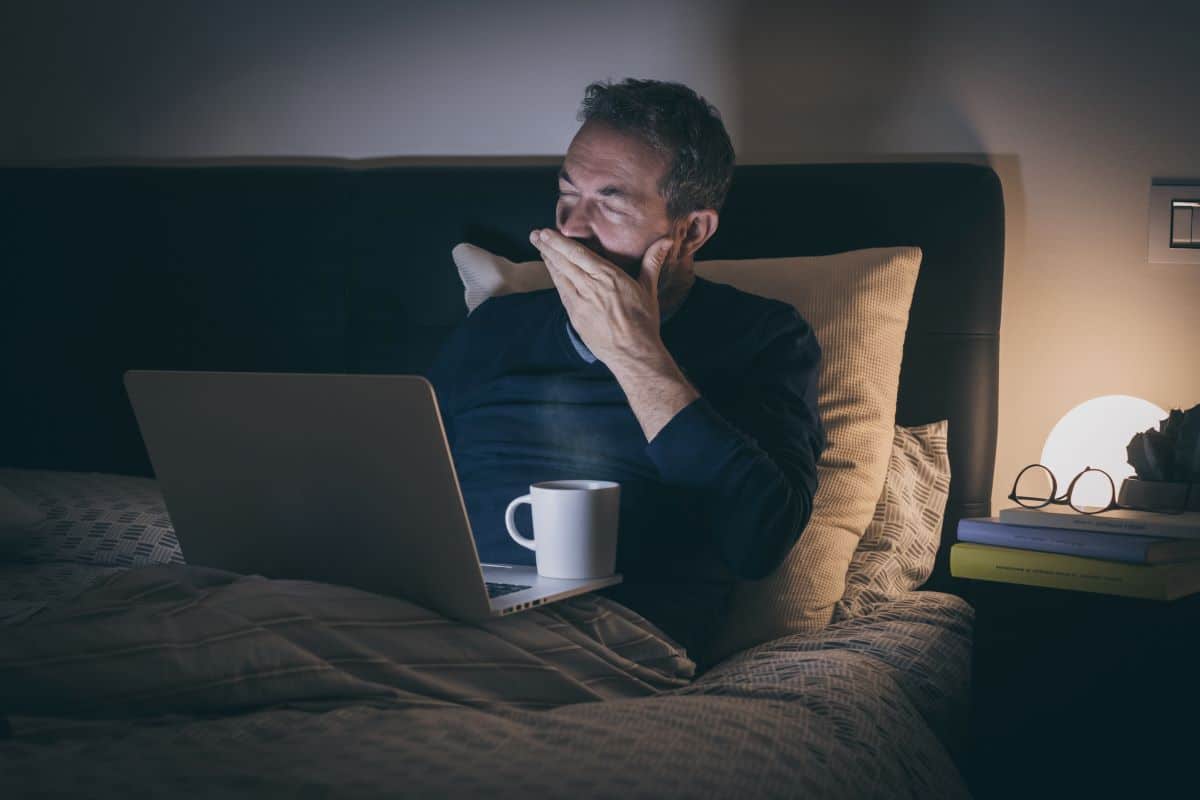We all do it, but we don’t talk about it enough. Sleep is a natural process for humans that allows us to reset our minds and bodies, and recharge from the day to prepare for tomorrow. If you’re looking to improve your health and feel better, you may want to consider changing your bedtime routine.
Our Natural Reset Button

Sleep is a natural process that’s essential for our bodies and minds. While asleep, we have the chance to rest and recharge, which is almost like hitting a reset button every night.
The Sleep Cycle

While sleeping, we go through several cycles. These include light sleep, deep sleep, and REM (Rapid Eye Movement) sleep. Each part of this cycle is essential during sleep and is important for a variety of health reasons.
Why Do We Sleep?

We all like to think of how much more time we could have if we didn’t have to sleep. Unfortunately for us, sleep is necessary for our overall health and well-being. Our physical and emotional stability is dependent on sleep, which is why we tend to be more cranky when we don’t get a good night’s rest.
The Secret to Thriving

Most health gurus and fitness coaches will tell you that sleep is essential. Good health, ranging from weight, mood, and physical strength, are dependent on getting enough sleep. Poor performance at work or an inability to think clearly can often be traced back to bad sleep.
Resetting the Body

Sleep plays a significant role in how we heal and repair our body. Long-term sleep deprivation can lead to serious health problems, like kidney disease, high blood pressure, diabetes, or heart disease.
Sleep and the Mind

A night without sleep can leave you feeling sluggish and unmotivated. In contrast, a good night’s sleep can help with learning, problem solving, and memory. A consistent lack of sleep can lead to mental health problems like depression and anxiety.
Fighting Infections

One major benefit of sleep is that it helps our immune system to remain strong. Without enough sleep, our bodies are often not able to fight off infections as effectively.
Too Much of a Good Thing?

Sleeping too much can sometimes be seen as a sign of laziness. While sleeping for longer can actually helpful for catching up on missed sleep, oversleeping may be a sign of an underlying health issue.
The Sleep Myth

For a long time, experts believed that everyone needs 8 hours of sleep. While this is a good average to encourage healthy sleep habits, individuals’ needs can vary widely depending on factors, like age, gender, and underlying health conditions.
Women vs. Men: The Sleep Showdown

Overall, women tend to need more sleep than men. This can be traced back to differences in hormones, brain structure, and lifestyles. This often is even more true during hormonal fluctuations, like menstruation, pregnancy, and menopause.
Juggling Tasks

While pregnancy and menopause can trigger a higher need for sleep, women tend to multitask more. Juggling roles in their careers, caregiving, and household responsibilities can result in an increased need for more sleep.
Power Napping

Naps can be beneficial, especially with regards to improved alertness and mood boosting. A Short nap of 20-30 minutes can give you a quick burst of energy, but longer naps may make you feel even more groggy or impact your nighttime sleep schedule.
Sleep Through the Ages

Sleep patterns tend to change as we age. While children can often sleep for longer periods of time and typically experience a deep sleep, adults usually have lighter, shorter sleep. Getting quality rest is even more important as we age.
The Sleep Monsters

Insomnia, sleep apnea, and restless leg syndrome are common conditions that affect sleep quality. While some can be improved naturally, medical advice may be needed when problems persist and affect your quality of life.
Reducing Screen Time

For some, screen time before bed is a relaxing way to destress. Unfortunately, the blue light that comes from screens can reduce the production of melatonin, the hormone that reacts to darkness to help you sleep. Limiting screen time may be the best bet for improving sleep.
Does Nutrition Affect Sleep?

Nutrition can impact your quality of sleep. Eating an overall balanced diet can promote better sleep, but timing also matters. Consuming heavy meals or caffeine before bedtime can stop you from falling asleep and affect the quality of your sleep once you do.
Running to Sleep

Regular physical activity can help you fall asleep faster and enjoy a deeper sleep. While there are arguments about whether exercise in the morning or evening is better for sleep, there is a general consensus that right before bed may not be the best time to work out.
Counting Sheep: Failproof?

If you find yourself tossing and turning every night, it may be helpful to talk with a healthcare provider. Counting sheep is not an effective solution when your sleep starts to affect your life.
The Power of Sleep

Unfortunately for those wishing for more hours in the day, sleep is an essential part of the daily routine. Sacrificing sleep may work for a day or two but overall, our bodies and minds depend on sleep. One of the best tools to a healthier lifestyle is getting a good night’s sleep.
The post To Sleep or Not to Sleep? Why Sleep is Essential
first appeared on Mama Say What?!
Featured Image Credit: Shutterstock / Fabio Principe.





